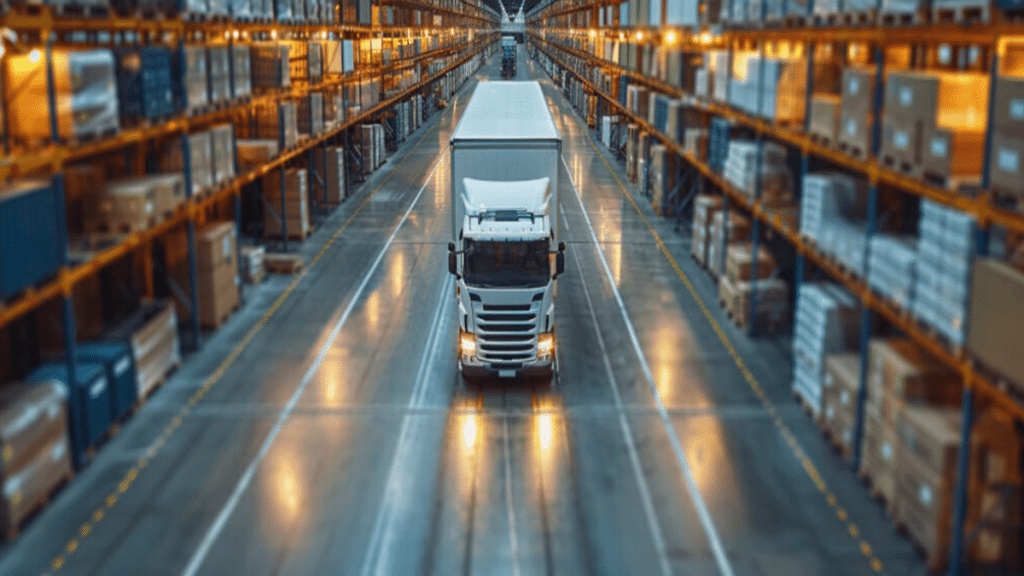Speeding and overloaded trucks cause serious crashes because they reduce the driver’s control, increase stopping distances, and put extreme strain on a truck’s brakes, tires, and suspension. When a vehicle as massive as a semi-truck is pushed beyond safe speed or weight limits, it becomes far more likely to tip over, lose cargo, or slam into other vehicles.
Jackson, Mississippi, is a busy city with major highways running through it, including Interstate 55, Interstate 20, and U.S. Route 49. These major roads see a mix of large trucks as well as local commuters every day, so even a small mistake from a truck driver can lead to serious accidents.
When this happens, it’s always recommended to work with a highly-rated Jackson truck accident attorney. They can investigate the crash, collect crucial evidence, and fight to hold the trucking company, driver, or cargo loader accountable.
What Is Overloading in the Trucking Industry?
Overloading happens when a truck’s cargo exceeds the legal weight limit. In the U.S., the federal maximum for a fully loaded semi is usually 80,000 pounds. This limit exists to keep trucks stable and safe.
In some cases, trucking companies or drivers overload trucks to save time and money, carrying more cargo in one trip instead of splitting it into multiple loads. But this practice makes trucks harder to handle, puts stress on the tires and brakes, and increases the chances of mechanical failures.
Improperly secured loads can also shift while the truck is moving. This can throw off the balance, making rollovers more likely or causing cargo to spill onto the road, endangering everyone nearby.
Why Is Overloading Dangerous?
An overloaded truck doesn’t respond the same way as one carrying a safe weight. Steering becomes less precise, and braking distances get much longer. If the driver needs to make a sudden stop, the extra weight can make it impossible to avoid a collision.
Overloading also damages roads and bridges, especially in areas where infrastructure is already under stress. Every overloaded trip puts more wear and tear on public roads, leading to potholes, cracks, and other hazards for all drivers.
Speeding Makes Things Worse
Speeding alone is dangerous for large trucks, but combined with overloading, it becomes a recipe for disaster. A heavy truck needs much more distance to stop. When it’s also going too fast, the driver has even less time to react to sudden changes.
In Jackson, where highways often have curves, on-ramps, and heavy commuter traffic, speeding trucks are especially risky.
Even a moment of misjudgment can send a fully loaded semi into another lane or off the road entirely.
Common Accidents Caused by Speeding or Overloading
- Rollovers: Extra weight raises the truck’s center of gravity, and high speeds make it harder to keep stable during turns or lane changes.
- Brake Failures: The added strain of both speed and weight can cause brakes to overheat and fail.
- Tire Blowouts: Overloaded tires wear faster and are more likely to burst, especially at highway speeds.
- Cargo Spills: If the load isn’t secured, speeding can shake cargo loose, spilling debris onto the road.
Who Can Be Held Responsible?
Responsibility for a crash involving a speeding or overloaded truck can fall on multiple parties:
- The truck driver for failing to check the weight and driving too fast.
- The trucking company for pressuring drivers to meet unrealistic schedules or ignoring weight limits.
- The loading crew for improperly securing or overloading cargo. In some cases, even maintenance providers or parts manufacturers can share blame if mechanical failures contributed to the crash.
Summary Points
- Speeding and overloading make large trucks far harder to control.
- Jackson’s location and heavy truck traffic make these risks more likely to affect local drivers.
- Overloaded trucks strain brakes, tires, and steering systems.
- Speeding reduces a truck driver’s reaction time and increases stopping distance.
- Multiple parties, including drivers, companies, and loaders, can be responsible for accidents.
